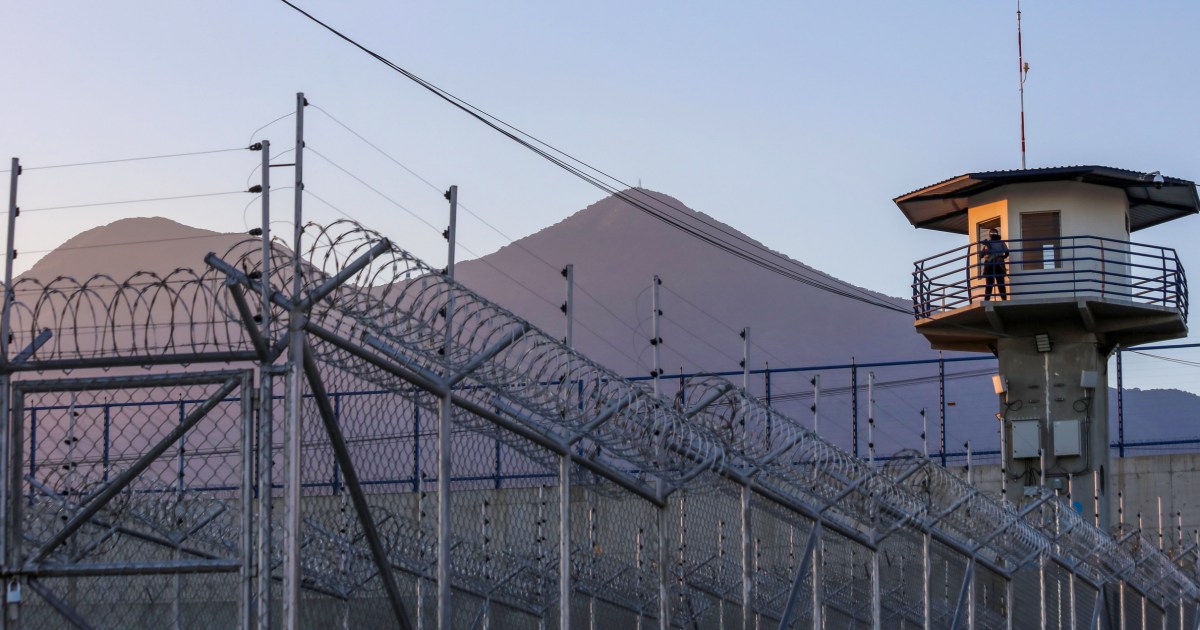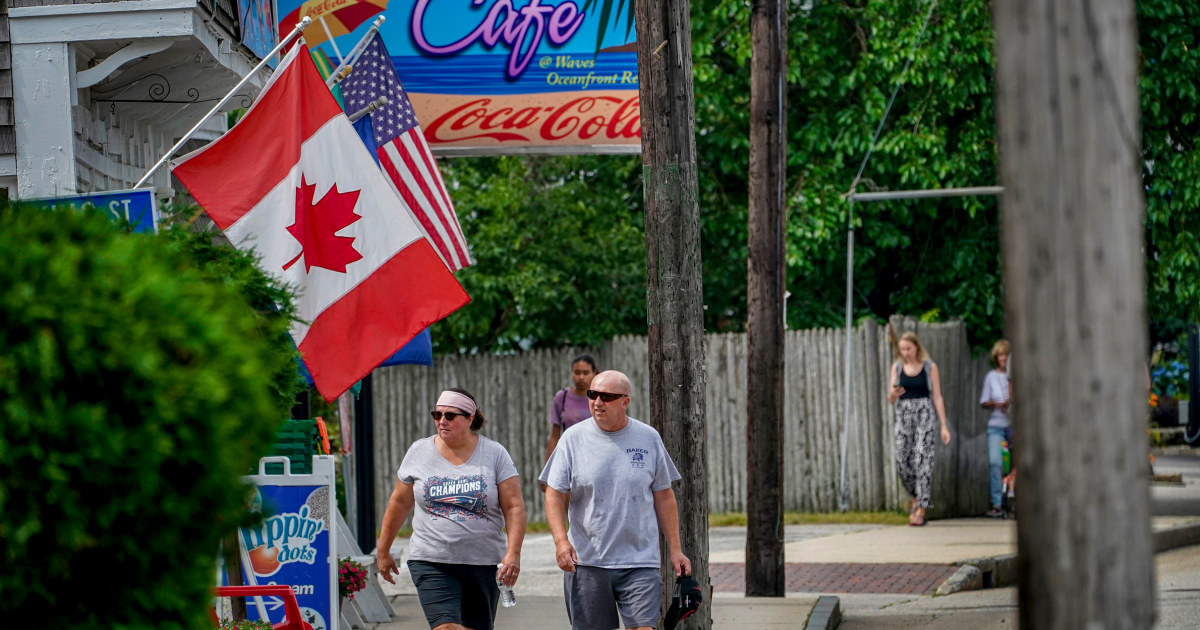A federal judge in Texas ordered the Trump administration Monday to facilitate contact between a Venezuelan man deported to El Salvador and his lawyers, giving the federal government until Wednesday afternoon.
It’s the first such order in the mounting legal saga surrounding President Donald Trump’s use of the Alien Enemies Act to deport hundreds of men to a supermax prison in El Salvador notorious for human rights abuses. The Terrorism Confinement Center, or CECOT, generally offers zero contact between inmates and the outside world, including their lawyers and families.
The order by Judge Keith P. Ellison of the Southern District of Texas gives the government 24 hours to confirm the location of the plaintiff — a 24-year-old Venezuelan man — and 48 hours to “restore and help maintain attorney-client communication” with him.
“This shows that the court is as concerned as we are as to the whereabouts of this individual and the illegal justification for his continued detention,” said Javier Rivera, the Houston lawyer representing Widmer Josneyder Agelviz Sanguino, the incarcerated Venezuelan man.
The Trump administration is expected to appeal the order to the 5th U.S. Circuit Court of Appeals. The federal government has been ordered before, including by the Supreme Court, to facilitate the return to the United States of people deported to El Salvador, most notably Kilmar Abrego Garcia, and has argued in response that it has no jurisdiction or ability to do so. Until now, it has not been ordered to facilitate contact between inmates and their lawyers.
Agelviz initially traveled to the United States in September with his mother and two younger brothers as part of the U.S.’ refugee resettlement program, a process that involves extensive vetting and background checks. When they arrived at the airport in Houston, immigration agents detained Agelviz.
Documents reviewed by NBC News show that Agelviz was detained because of a tattoo on his forearm that includes a clock and a rose, images a Customs and Border Protection agent wrote are “associated” with the Venezuelan gang Tren de Aragua. The documents show that he had no criminal record and that there was no additional evidence linking him to the gang.
“My son is not a gang member,” said Agelviz’s mother, Lisbeth Carolina Sanguino, who is now living in San Antonio with her two other sons. “He’s a young man who’s never hurt anyone.”

Sanguino hired a lawyer to prove her son’s innocence in immigration court. But only two weeks before the immigration court case was set to be resolved, Agelviz and hundreds of other men from Venezuela were shipped with no warning or court hearings to El Salvador. Attorneys for the men argue that their sudden deportations violated their due process rights, an issue now at the center of legal challenges to return them to the United States and prevent further similar deportations.
Advocates and lawyers representing the men in CECOT have found that a majority of them had no criminal records. Many also did not violate any immigration laws when they came to the United States, according to a recent analysis by the Cato Institute, often crossing the U.S.-Mexico border with appointments through the CBP One app.
But at least three, including Agelviz, came to the United States under the refugee resettlement program, according to Michelle Brané, executive director of Together and Free, a nonprofit group assisting more than a hundred families of deported Venezuelans.
Applicants for refugee status go through months of vetting conducted at the migrants’ locations abroad, not at the border, including extensive background checks by both U.S. and international law enforcement agencies to ensure they do not pose public safety threats to the United States.
“Refugees are always very carefully screened before they are admitted into the United States,” Brané said. “It seems particularly unlikely that they would have made it through that entire process and really have some serious indication of being such a dangerous criminal.”
In a statement, a White House official said: “DHS intelligence assessments go well beyond just gang affiliate tattoos and social media. Tren De Aragua is one of the most violent and ruthless terrorist gangs on planet earth. They rape, maim, and murder for sport. President Trump and Secretary Noem will not allow criminal gangs to terrorize American citizens.”
The statement did not offer any additional evidence linking any of the refugees deported to CECOT to Tren de Aragua or to criminal activity of any kind. However, the official added: “We are confident in our law enforcement’s intelligence, and we aren’t going to share intelligence reports and undermine national security every time a gang member denies he is one. That would be insane.”
The Department of Homeland Security document explaining the reasons for Agelviz’s detention indicates that he had no criminal record or incriminating information in his social media. It lists no evidence of gang affiliation beyond his tattoos.
Those tattoos, Sanguino said, are references to her son’s childhood: his grandmother’s rose garden and an owl that visited their home every night at 3 a.m., which is the time shown on the clock.
“I never approved of the tattoos,” Sanguino said. “But he asked me so much that when he turned 18, I finally said, ‘Go ahead, but I don’t want to see them.’”
Agelviz also tattooed his mother’s name and his brothers’ initials on his arm. “He thought because he got my name tattooed that I wouldn’t get mad at him,” she said. Her two younger sons do not have tattoos.
The family were living in Ecuador when they applied for refugee status and went through the screening process, which lasted around 10 months and involved several in-person interviews during which Agelviz was asked about his tattoos. They had fled Venezuela for reasons they asked not to divulge to protect family members still at risk.
The refugee program is reserved for people fleeing armed conflict and targeted persecution; it is rarely granted to Venezuelans or other migrants from the Americas, and it is typically associated with people fleeing war in the Middle East and Africa.
Like all loved ones of men deported to CECOT, Sanguino has had no contact with her son for more than two months.
“It’s very difficult for me as a mother to have to imagine the situation my son is in without being able to do anything about it, without knowing how he is,” she said. “How is his health, how is he eating, what is going through his mind?”
The first and only glimpse at the conditions under which the men are being held came last week, when former Rep. Matt Gaetz, R-Fla., as part of his show on One America News, accompanied a congressional delegation to the wing of CECOT holding Venezuelan deportees. (No other media outlets have been allowed access to that wing of the facility.) The prisoners there repeatedly shouted “Liberty!” and made the international hand signal for help.
Watching the video, Sanguino said, only made things harder.
“I eat and I feel guilty, because I don’t know what he’s eating, or if he’s eating,” Sanguino said. She often wakes up anxious thinking of him. “And I want to think that it’s a nightmare but feel sad every time I remember that it’s reality.”








